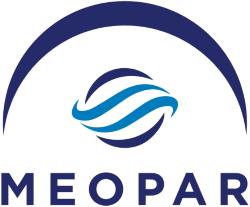
|
|
|
|
DEB Theory: research for metabolic organization Dynamic Energy Budget (DEB) theory aims at unifying commonalities of metabolic organization between organisms (animals, plants, bacteria…). This theory is based on a restricted number of assumptions, written out as mathematical formulas that allows quantifying growth, development, reproduction of an organism all along its life cycle as a function of available food and temperature. It also enables modelling the effects of stressors such as contaminants, pathogens, oxygen, pH... In the actual context of biodiversity erosion, comparison of species functional traits is not the only applications of DEB theory. Prediction of the effects of global change, better understanding the geographical patterns of species, the effects of environmental stressors, optimization of bio-production, management of exploited resources, invasive species control are also examples of applications for which better understanding the metabolism of species and how it is controlled by the environment is key and for which DEB theory allowed knock down scientific some barriers with more than 900 publications. DEB2021 is the seventh edition of a series of tele-courses, schools and symposia which take place every two years (see here the past conferences).
Unfortunately, as the Covid-19 pandemic continues to rage worldwide, travel restrictions and health safety guidelines in Canada are still in place at this time. Therefore, the organizing committee has made the decision to not hold DEB2021 events in person in Halifax this year. Instead, a series of online conferencing tools have been set up for the School and the Symposium to be held virtually.
When? DEB2021 is a three-part international event: PART 1: 7-week International Tele-course - general online theoretical part (Mar 03 - Apr 22, 2021) PART 2: 6-day Thematic School - practical training part (May 17 - May 22, 2021) PART 3: 5-day International DEB Symposium (May 24 - May 28, 2021)
Where?The Tele-course: mainly your own working place, and we encourage participants to form local study groups. We recommend that the groups meet once a week, although individual participation is also possible. The various meeting places will be interactively determined at the start of the course. Individuals who registered separately will be assigned to a group in the same time-zone and asked to interact with the group during the meetings in Google hang outs, Skype, Zoom, etc. The School and Symposium originally planned to take place at Dalhousie University, in Halifax, Nova-Scotia (Canada) will be held online via Zoom.
For whom? The course is for graduate students and scientists, but advanced undergraduates are also welcome. Several professors participated in the development of earlier courses, and their valuable input contributed to the level of the current course. Participants should have a background in biology, mathematics, engineering, chemistry or physics with an interest in the logic behind the quantitative aspects of the metabolic organization of living systems. Participants of previous courses wrote a number of special issues on DEB theory and its applications. Some were involved in organising the previous symposiums in Brest, Lisbon, Texel, Marseille and Tromso. You can actually meet them and learn from their experience. The 2005-participants created the Research Group AQUADEB on applications of DEB theory to aquatic organisms. Moreover, 2015-participants created the 3-year research project FREE "FRamework for integrating Eco-physiological and Ecotoxicological data into ecosystem-based management tools", which stimulated the growth of AmP and an increase in automatization and robustness of DEB parameter estimation. This nicely illustrates possible after-course activities.
Sponsored by MEOPAR The Marine Environmental Observation, Prediction and Response Network (MEOPAR) is a national Network of Centres of Excellence, connecting top marine researchers across the country with highly qualified personnel, partners and communities. MEOPAR aims to fund leading-edge research, train the next generation of marine professionals and connect research results to real-world solutions. |
News Welcome to the DEB2021 websiteLogin to access recorded presentationsLogin to access the posters
Download the Book of Abstracts Symposium Program is available Abstract submissions closed DEB2021 is going virtual! Abstract submissions are open Registrations are open Special issue in Conservation Physiology Keynote Speakers annouced! Contact |
| Online user: 2 | Privacy |

|





